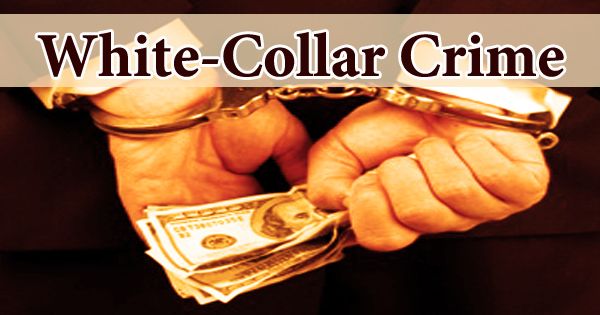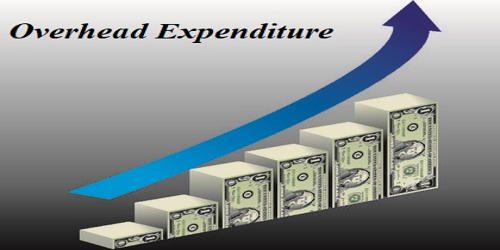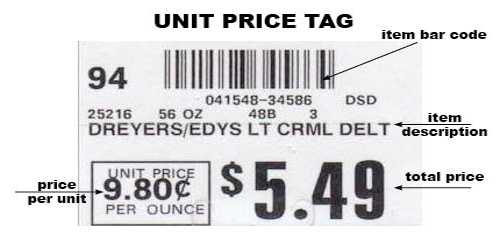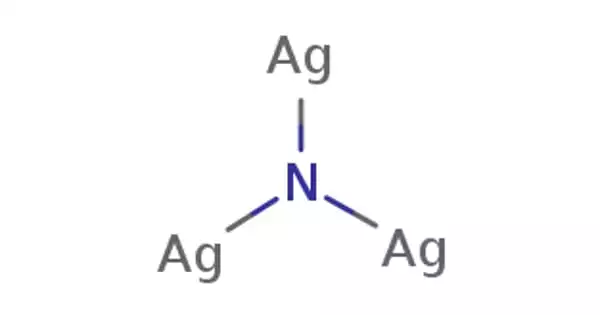White-collar crime (or corporate crime, more accurately), crime committed by individuals who, mostly by virtue of their professions, abuse social, economic, or technical influence for personal or corporate benefit. It was first characterized by the American crime analyst Edwin Sutherland in 1939 as “a crime committed by a person of respectability and high social status in the course of their occupation.” He utilized the expression to portray the kinds of wrongdoings generally carried out by “persons of respectability” individuals who are perceived as having a high societal position. Sutherland ultimately founded the Bloomington School of Criminology at the State University of Indiana. White-collar offenders typically hold a skilled position of influence and/or reputation, and one that demands well above average pay. The motive for these crimes is “to obtain or avoid losing money, property, or services or to secure a personal or business advantage.”
Also, advancements in business and innovation have widened the extent of white-collar crime to incorporate cybercrime (computer crime), medical care extortion, and licensed innovation wrongdoings, notwithstanding more-customary wrongdoings including misappropriation, pay off, scheme, hindrance of equity, prevarication, tax evasion, antitrust infringement, charge wrongdoings, and administrative infringement. Prior to Sutherland’s introduction of the idea of white-collar crime, the upper classes of society were considered to be inherently incapable of engaging in such illegal behavior. Such a conviction was so profoundly settled in the public arena that when Sutherland previously distributed a book regarding the matter, a portion of America’s biggest organizations effectively sued to get the book vigorously controlled.
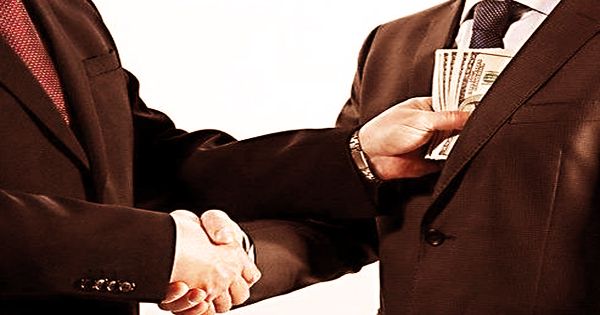
In the decades since, the spectrum of white-collar crimes has vastly increased as digital technologies and new financial products and arrangements have spawned a host of new offenses. The distinction between white-collar crime and blue-collar crime derives from the various forms of illegal activity that the criminal has access to engage in. An occupational crime that happens when violations are carried out to advance individual interests, say, by changing records and cheating, or by the cheating of customers by experts. High-profile individuals convicted of white-collar crimes in recent decades include Ivan Boesky, Bernard Ebbers, Michael Milken, and Bernie Madoff.
An organizational or corporate crime which happens when corporate heads perpetrate criminal demonstrations to profit their organization by cheating or value fixing, bogus promoting, and so forth Regular wrongdoing, as a result of the more restricted methods for individuals perpetrating it, will in general be all the more straight-on theft, thievery, and so forth. In comparison, white-collar offenders are most often in a role such as being a loan officer in a bank to conduct extensive and complex fraud schemes. Specific examples of practices that constitute white-collar crimes include price collusion, falsifying records of testing on pharmaceutical goods to obtain manufacturing licenses, and substituting inexpensive, faulty materials for costlier components listed in the construction of roads or buildings but charging the consumer for the full cost of the specified materials.
A few meanings of middle-class wrongdoing consider just offenses attempted by a person to profit themselves. Be that as it may, the FBI, for one, characterizes these wrongdoings as including huge scope misrepresentation executed by numerous individuals all through a corporate or government establishment. There were several factors going into the establishment of White-collar crime but the main thing was industrialization. In certain cases business crimes are committed by bogus companies that act as legitimate businesses or associations. While companies cannot be imprisoned, they can be criminally prosecuted with fines and other penalties.
Most of the corporate fraud cases include bookkeeping plans that are considered to “delude financial backers, inspectors, and experts about the genuine monetary state of a partnership or business substance.” White-collar crime and corporate wrongdoing are comparative since they occur inside the business world. The distinction is that white-collar crime benefits the people involved, and corporate crime benefits the organization or the corporation, typically high-ranking individuals within the corporation. White-collar crime is additionally regularly more hard to distinguish than different kinds of wrongdoing, to some extent since misfortunes may not be promptly clear to casualties yet in addition in light of the fact that the violations can include refined plans and concealments.
White-collar crime encompasses a wide range of offenses, including the following:
- Fraud: Fraud is a broad term that includes many different techniques used to defraud people of their income.
- Insider trading: Insider trading is exchanging finished with the advantage of the dealer having material, non-public data that gives the person in question a preferred position in the monetary business sectors.
- Ponzi scheme: Named after Charles Ponzi, the original perpetrator of such a fraud, a Ponzi scheme is an investment scam that promises investors exceptionally high returns. It pays those returns to the initial investors with the newly deposited funds of new investors.
- Identity theft and other cybercrimes: Fraud and PC framework “hacking” are two of the most broad computer crimes. It’s assessed that misfortunes from fraud in the United States alone added up to almost $2 billion of every 2019.
- Embezzlement: Embezzlement is a crime of robbery, or theft, that can go from a representative removing a couple of dollars from a money cabinet to a perplexing plan to move millions from an organization’s records to the thief’s records.
- Counterfeiting: Our cash has gotten brighter and more extended in detail since it needed to battle falsifying. With the present PCs and progressed laser printers, the old money was simply too simple to even think about replicating.
- Money laundering: Money laundering is the way toward taking money procured from unlawful exercises, for example, drug dealing and causing the money to have all the earmarks of being income from lawful business action. The cash from the unlawful action is considered “messy” and the interaction “launders” the cash to make it look “clean.” Criminals use a dizzying number and variety of methods to launder money. Among the most popular, however, are real estate, precious metals, foreign trade, and virtual currency such as bitcoin.
- Espionage: Espionage, or spying, is commonly a white-collar crime. For instance, a specialist of an unfamiliar government that needs to get part of Apple Inc. innovation may move toward a worker at Apple and offer to pay them $10,000 in the event that they will give a duplicate of the ideal innovation.
Many white-collar crimes involve organized criminal activity by coconspirators. For example, a case of real-estate fraud could involve the knowing involvement of an escrow officer, a buyer, an appraiser, and a bank officer, all of whom were willing to sign false documents to perpetrate a fraud for personal gain. White-collar crime is commonly subdivided into two broad, general categories:
- Individual crimes: Individual crimes are monetary violations carried out by an individual or a gathering of people. An illustration of an individual middle-class wrongdoing is a Ponzi conspire, for example, the one run by Bernie Madoff. Other individual wrongdoings in this classification incorporate fraud, hacking, duplicating, and any of many misrepresentation plans.
- Corporate crimes: Some white-collar crime happens on a corporate level. For instance, a business firm may let its exchanging work area representatives participate in an insider exchanging plan. Illegal tax avoidance may likewise be led on a corporate level.
A wide range of administrative offences are often known to be white-collar crimes. This could include breach of tax laws, evasion of currency-reporting requirements, securities violations, and environmental crimes. The crimes identified with the public interests comprise essentially of injustice. In the advanced world, there are a ton of countries what partition the violations into certain laws. White-collar crime addresses one of the quickest developing sorts of crime on the planet. Virtually every class of white-collar crime has expanded in occurrence lately.
Information Sources:
